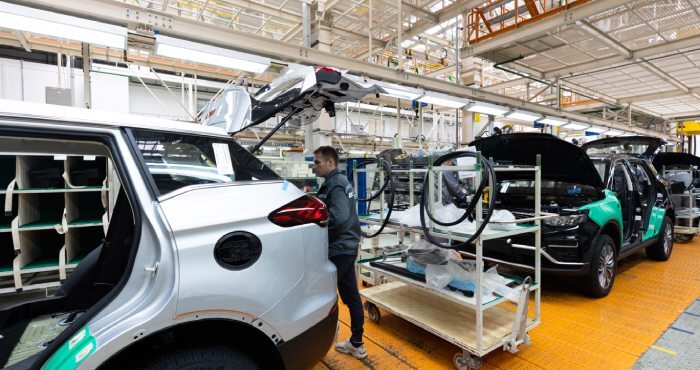Contemporary automobiles are fitted with advanced technology, featuring event data recorders (EDRs), often referred to as “black boxes.” These instruments capture vital details regarding a vehicle’s operation and the driver’s actions prior to and during an accident. In disputes related to faulty vehicles, black box information has emerged as a crucial asset for attorneys specializing in vehicle defects. Such data can serve as undeniable proof of a car’s failure, aiding victims in obtaining just compensation.
This article explores how a California Lemon Law attorney utilizes black box data to secure favorable outcomes in vehicle defect cases, from proving manufacturer negligence to establishing liability in legal proceedings.
Understanding Black Box Technology
What Is a Vehicle Black Box?
A vehicle black box, also known as an Event Data Recorder (EDR), is a device installed in modern vehicles that captures critical technical information related to accidents. Unlike airplane black boxes that record audio, vehicle EDRs focus on crash-related data. For California Lemon Law lawyers, this data can be crucial in providing vehicle defects, manufacturer liability, or recurring mechanical failures. EDRs typically record key details such as:
- The speed of the vehicle shows its current rate of travel.
- The application of brakes assesses both the strength and regularity of braking actions during operation.
- The angle of the steering wheel indicates the direction and extent of the driver’s steering movements.
- The throttle position indicates how much power is being supplied to the engine.
- The use of seatbelts indicates if passengers are safely secured in their seats.
- The activation of airbags indicates whether they have deployed as a reaction to an accident.
This data can be crucial for piecing together the events of an accident and assessing if a mechanical malfunction contributed to it.
How Black Box Data Is Collected
Vehicle EDRs automatically store data from a few seconds before and after an accident. This data is extracted using specialized tools and software, often requiring cooperation from the vehicle’s manufacturer. In legal cases, experts analyze this data to uncover potential defects or malfunctions.
The Role of Black Box Data in Vehicle Defect Cases
1. Proving Mechanical Failure
A significant obstacle in cases related to vehicle defects is demonstrating that a mechanical issue, rather than human error, was responsible for an accident. Data from the black box can aid in this determination by providing evidence of:
- Abrupt deceleration or power loss
- Accidental acceleration
- Malfunctioning safety systems like airbags
- Absence of braking even when the driver attempted to stop
For instance, in situations where unintended acceleration is suspected, black box data can verify if the driver engaged the brakes while the vehicle continued to accelerate because of a malfunction in the throttle or software.
2. Establishing Manufacturer Liability
Data from black boxes can identify the source of a defect, determining if it stemmed from a manufacturing error, incorrect software coding, or the failure to withdraw defective components. Attorneys utilize this information to claim that the manufacturer acted negligently in ensuring the vehicle’s safety.
One well-known instance is the Toyota sudden acceleration incidents, where black box data was instrumental in demonstrating that certain vehicles encountered unexpected acceleration as a result of electronic issues.
3. Rebutting Manufacturer Defenses
Manufacturers frequently contend that accidents are due to driver mistakes instead of flaws in their products. However, data from black boxes can challenge these assertions by demonstrating that:
- The driver acted appropriately (such as braking or steering effectively)
- The vehicle did not react as anticipated
- An issue with the mechanics or software was actually responsible for the incident
For example, if a driver pressed the brakes fully but the vehicle did not stop, this would suggest a failure in the braking system rather than any fault on the part of the driver.
The Legal Process: Using Black Box Data in Court
Data Retrieval and Examination
When an attorney takes on a legal matter, the initial step involves obtaining data from the vehicle’s black box. Forensic specialists are engaged to extract this information, which is meticulously examined for indications of mechanical issues. This examination is essential in assessing whether any defects in the vehicle played a role in the incident. The results are then compared with accident documentation, witness accounts, and expert opinions to construct a thorough case.
Presenting Evidence in Court
Black box data is instrumental in legal proceedings and is frequently presented through the testimony of expert witnesses. Automotive engineers and forensic analysts interpret the data to ensure it is accessible for judges and jurors. Lawyers also employ techniques such as accident reconstruction, utilizing simulations and visual presentations to clarify how the event transpired. Furthermore, they analyze these findings alongside similar cases of defects to reveal patterns of negligence by manufacturers.
Enhancing Settlements and Negotiation Strategies
In numerous situations, black box data acts as a significant asset during settlement discussions. By delivering clear and undeniable proof of a defect, it bolsters the plaintiff’s stance and enhances the chances of achieving a positive resolution. Manufacturers, wary of the potential financial and reputational repercussions of a lengthy trial, may choose to settle instead of facing the implications of litigation.
The legal process of a Lemon Law claim involves filing a complaint, gathering evidence, and negotiating with manufacturers to enhance settlements through strategic negotiation techniques.
Challenges in Using Black Box Data
Challenges in Accessing Data
- Manufacturers often limit access to black box data, and they may only release it when mandated by a court.
- Certain companies employ proprietary encryption methods, which complicate the process of data extraction without the right tools.
- Disputes can emerge regarding who is entitled to access and utilize the data in legal cases.
- Delays in acquiring this data can impede investigations and prolong legal processes.
Difficulties in Data Interpretation
- Although black box data is factual, understanding it requires specialized knowledge.
- Defense attorneys frequently engage their own experts to dispute the analysis presented by the plaintiff.
- Divergent expert testimonies can introduce uncertainty and complicate legal arguments.
- Incorrect interpretation of the data may result in false conclusions about liability or mechanical failure.
Privacy and Legal Complications
- Some states enforce regulations that limit how black box data can be accessed and utilized in judicial settings.
- Concerns about privacy surface when personal driving information is accessed without consent.
- Attorneys must navigate intricate laws to ensure that evidence is permissible in court.
- Ethical considerations may influence the timing and manner in which black box data is presented during legal proceedings.
Case Studies: Black Box Data in Action
1. Toyota’s Unintended Acceleration Incidents
In various legal actions against Toyota, data from vehicle black boxes was instrumental in showing that certain cars experienced unintended acceleration. This evidence indicated that drivers had engaged the brakes, yet the vehicles continued to accelerate, challenging Toyota’s assertions that driver error was the sole cause.
2. General Motors Ignition Switch Issue
General Motors faced legal challenges related to a defective ignition switch that led to unexpected vehicle stalls. Data from black boxes indicated that these vehicles lost power to critical systems just before collisions, aiding attorneys in establishing that the defect was the cause of the accidents.
3. Tesla Autopilot Collision Cases
Numerous California Lemon Law cases involving Tesla’s Autopilot system have relied on black box data to determine whether vehicle defects, rather than driver error, caused performance issues or crashes. In some cases, the data revealed that drivers were properly engaged and following operational guidelines, challenging Tesla’s claims that driver negligence was responsible. This evidence has been instrumental in strengthening consumer claims and holding the manufacturer accountable under California’s Lemon Law.
Future of Black Box Data in Litigation
With the progression of automotive technology, data from black boxes is set to play an increasingly vital role in Lemon Law disputes. Notable trends that are emerging include:
1. Enhanced Data Collection and Evaluation
Modern automobiles capture a broader range of information, such as video recordings from onboard cameras, GPS location data, and sophisticated sensor measurements. This wealth of information will offer a more detailed understanding of collision events, bolstering legal positions.
2. Connection with Self-Driving Vehicles
As autonomous cars become more prevalent, the data recorded in black boxes will be crucial for assessing fault in accidents. Should an autonomous vehicle experience a malfunction, the black box information will clarify whether the issue stemmed from software failures, sensor inaccuracies, or mechanical problems.
3. Legislative Changes and Consumer Protections
Authorities are increasingly acknowledging the significance of black box data in judicial proceedings. Upcoming laws may require that vehicle owners and their attorneys have greater access to this data, thus lowering the obstacles to acquiring vital evidence.
Black box data has transformed vehicle defect litigation, offering San Diego lemon lawyer crucial, unbiased evidence of mechanical failures. This technology is instrumental in proving liability, challenging manufacturer defenses, and securing rightful compensation for consumers. However, hurdles such as restricted data access and complex interpretations persist. As automotive technology evolves, black box data will remain essential in holding vehicle manufacturers accountable for defects that jeopardize consumer safety.
If you suspect that a vehicle defect contributed to your accident, seeking the expertise of a knowledgeable vehicle defect attorney who is proficient in analyzing black box data can be vital to successfully pursuing your case.









